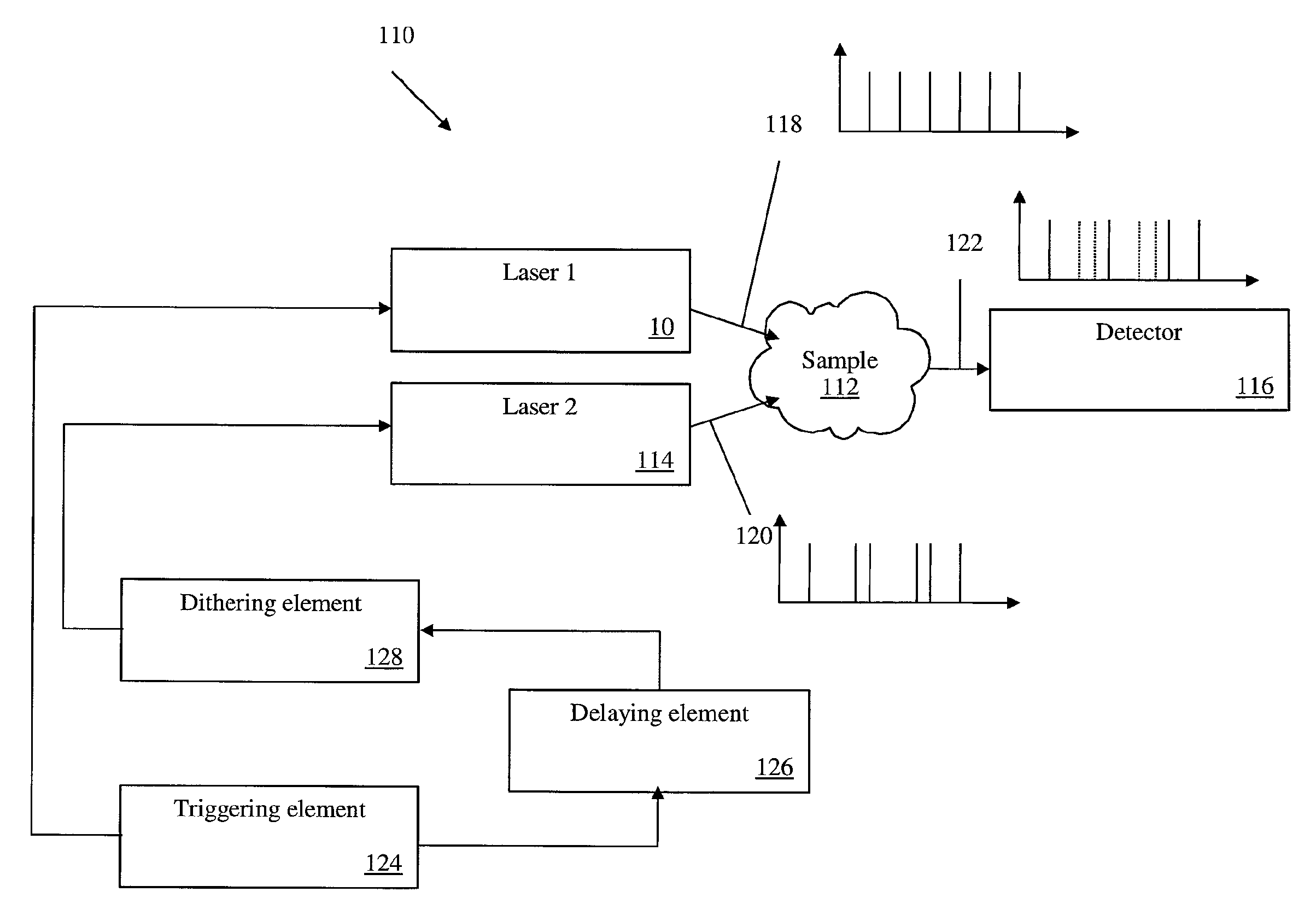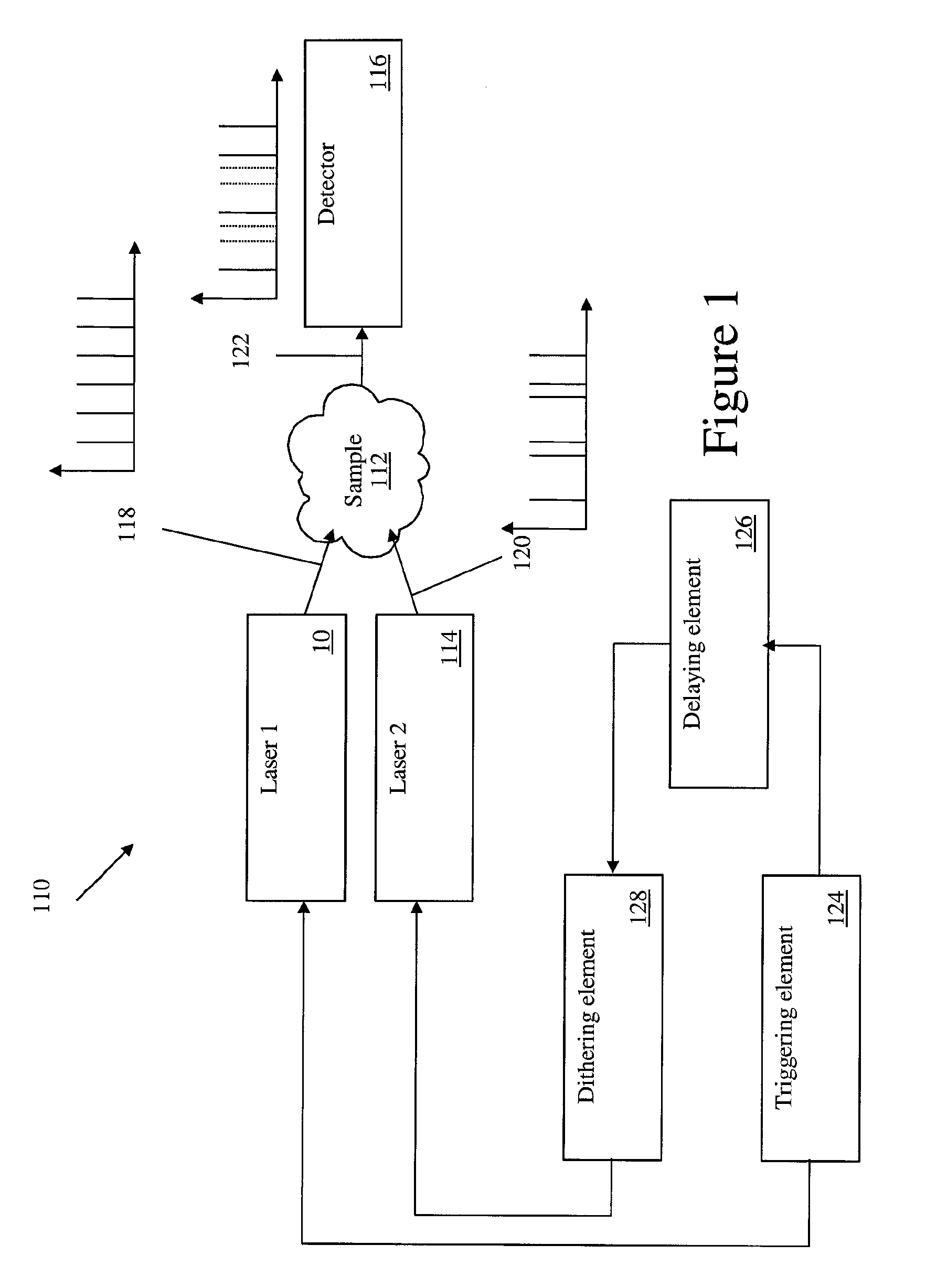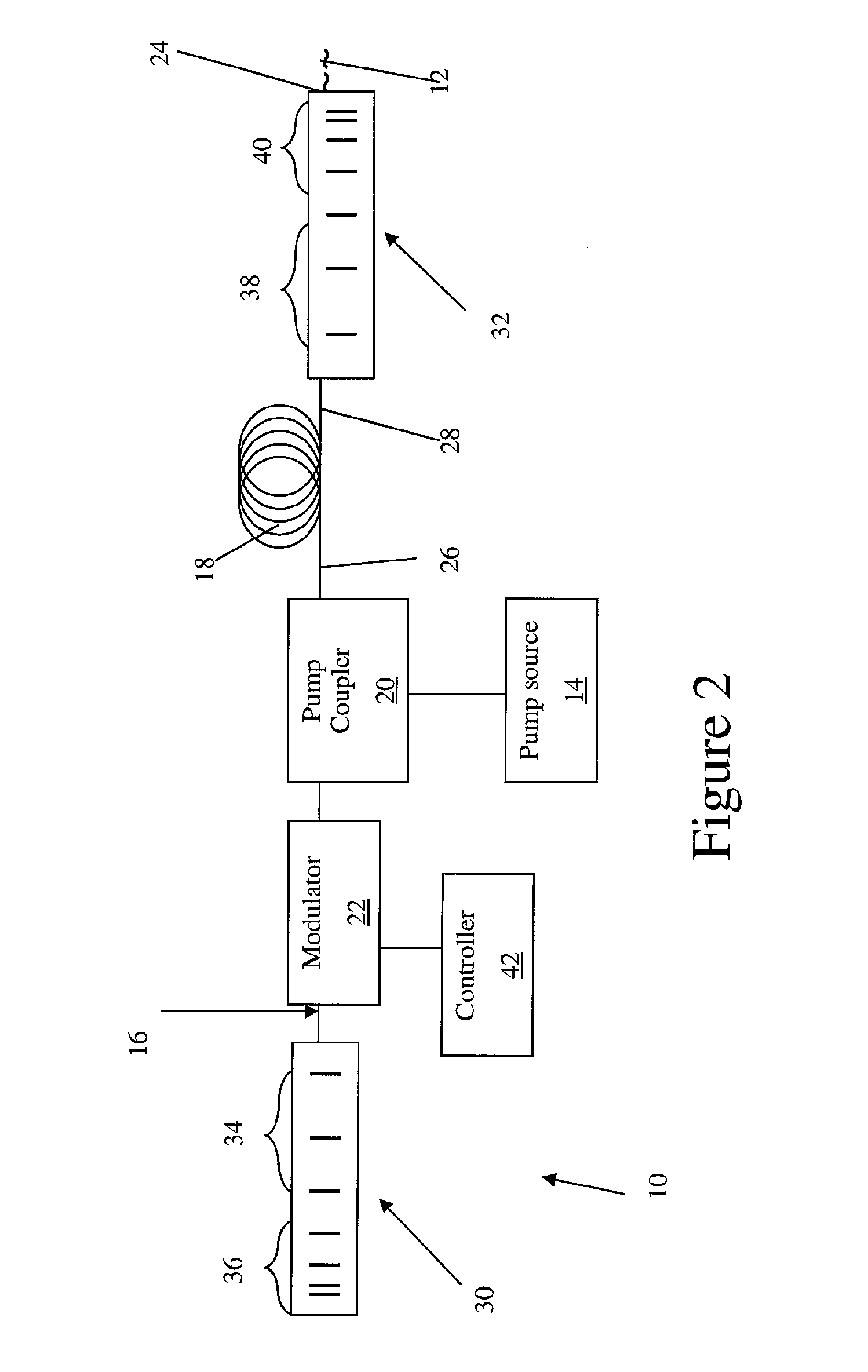Spectrometer
a spectrometer and optical power technology, applied in the field of substance analysis, can solve the problems of relatively slow process, relatively difficult quantitatively assessing non-linear interactive effects, and different optical power received by the substance, and achieve the effects of convenient precise timing, convenient use, and low cost of manufactur
- Summary
- Abstract
- Description
- Claims
- Application Information
AI Technical Summary
Benefits of technology
Problems solved by technology
Method used
Image
Examples
Embodiment Construction
[0026]FIG. 1 illustrates a spectrometer 110 in accordance with an embodiment of the present invention. The spectrometer 110 is usable for characterizing a sample 112. Typically, the spectrometer 110 measures an optical nonlinear interaction in a sample 112 between light emitted by the spectrometer 110 and the matter contained in the sample 112. For example, a first laser 10, a second laser 114 and a light detector 116 are configured and positioned for performing a spectroscopy selected from the group consisting of Coherent anti-Stokes Raman Scattering (CARS) spectroscopy, Stimulated Raman Spectroscopy (SRS), sum frequency generation spectroscopy and difference frequency generation spectroscopy, among other possibilities.
[0027]The physical disposition of the first and second lasers 10 and 114 and of the light detector 116 relatively to each other and relatively to the sample 112 depends on the nature of the sample 112 and on the nature of the interaction between first and second lase...
PUM
 Login to View More
Login to View More Abstract
Description
Claims
Application Information
 Login to View More
Login to View More - R&D
- Intellectual Property
- Life Sciences
- Materials
- Tech Scout
- Unparalleled Data Quality
- Higher Quality Content
- 60% Fewer Hallucinations
Browse by: Latest US Patents, China's latest patents, Technical Efficacy Thesaurus, Application Domain, Technology Topic, Popular Technical Reports.
© 2025 PatSnap. All rights reserved.Legal|Privacy policy|Modern Slavery Act Transparency Statement|Sitemap|About US| Contact US: help@patsnap.com



